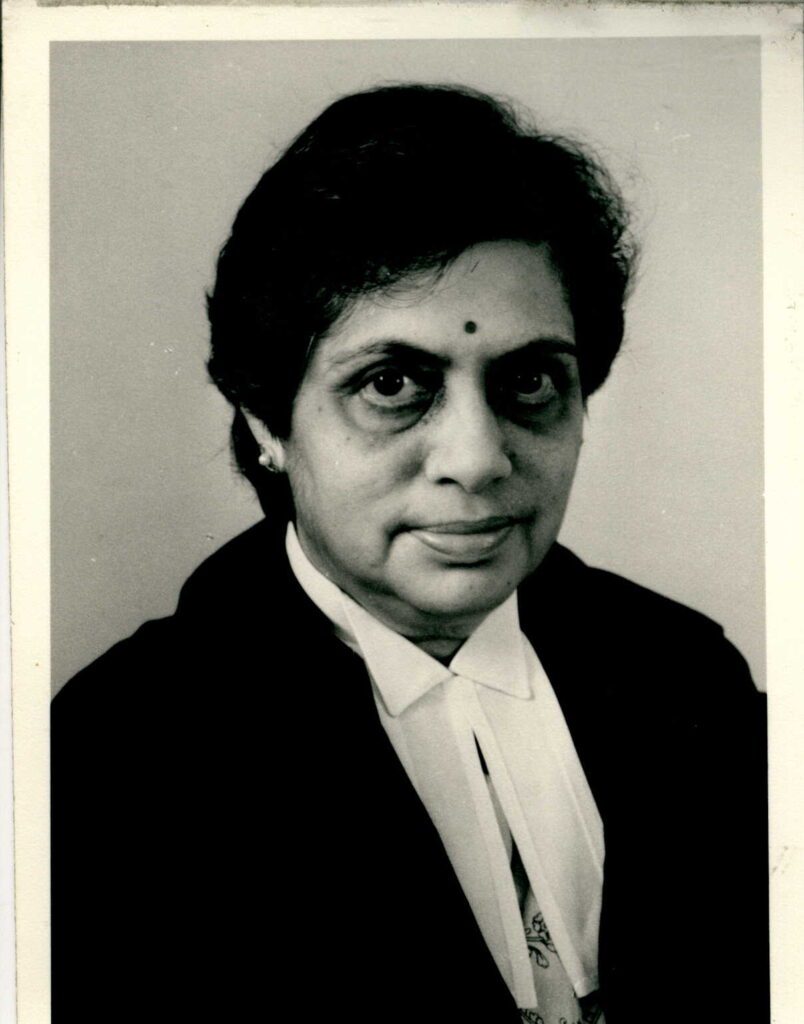Radhika Mittal
“Gender equality is the hallmark of social justice, and it cannot be compromised at the altar of tradition or cultural norms.” – Justice Sujata Manohar in Vishaka vs. State of Rajasthan .
Justice Sujata Manohar is a name synonymous with gender justice and constitutional integrity in Indian jurisprudence. She broke barriers throughout her career, making a significant impact on Indian law. From her formative years in Mumbai to her elevation to the Supreme Court, her journey has inspired countless legal minds.
Born into a family with deep roots in law, Sujata Manohar’s early years were influenced by her father, Justice Kantilal Desai, a second Chief Justice of the Gujarat High Court . Growing up in an intellectually stimulating environment, she excelled academically, attending Elphinstone College and later pursuing law at Lincoln’s Inn in London.
Upon returning to India, Justice Manohar joined started to practice in the Bombay High Court. Her meticulous approach and unyielding commitment to justice set her apart early in her career. She soon gained recognition as a formidable lawyer with a keen sense of justice.
In 1978, Justice Manohar was appointed as a judge of the Bombay High Court. She swiftly made her mark, especially in cases related to constitutional law, human rights, and gender justice. She became known for her clarity of thought and fearless independence in delivering judgments.
In 1994, she became the first woman Chief Justice of the Bombay High Court. Her tenure was marked by progressive reforms, enhancing the transparency and efficiency of the judicial process. Her leadership earned her immense respect among her peers and the legal community.
In 1994, Justice Manohar was appointed to the Supreme Court of India. Her judgments during her time in the apex court have left an indelible mark on Indian jurisprudence. One of her most famous rulings was in the 1997 ,Vishaka vs. State of Rajasthan , where she laid down the guidelines for preventing sexual harassment at the workplace, which came to be known as the “Vishaka Guidelines.” This judgment was a watershed moment in women’s rights in India.
Landmark Judgments
Throughout her career, Justice Sujata Manohar championed the cause of women’s rights, emphasizing equality in the workplace, in family law, and in society. Her judgments reflect a deep understanding of social realities and the need for progressive legal reforms:.
- Vishaka vs. State of Rajasthan (1997): A landmark case where she emphasized the need for gender-sensitive work environments and protection against sexual harassment.
- C. Masilamani Mudaliar vs. Idol of Sri Swaminathaswami Thirukoil (1996): In this case, she asserted women’s right to property under the Hindu Succession Act, advocating for gender equality in inheritance laws.
Justice Manohar also took a keen interest in environmental protection, advocating for sustainable development through her judicial pronouncements.
Post-Retirement and Legacy
After retiring from the Supreme Court in 1999, Justice Manohar continued to serve the cause of justice as a member of the National Human Rights Commission. Her influence extended beyond the courtroom, as she played a vital role in drafting policies and laws aimed at protecting the rights of marginalized communities, especially women.
In her own words, Justice Manohar once said, “A judge’s duty is not just to apply the law but to interpret it in a way that serves the principles of justice.” This guiding philosophy shaped her approach to every case she adjudicated.
Justice Sujata Manohar’s career is a testament to her unwavering commitment to justice, equality, and human rights. Her judgments have redefined the scope of gender justice in India, and her legacy continues to inspire new generations of lawyers and judges


